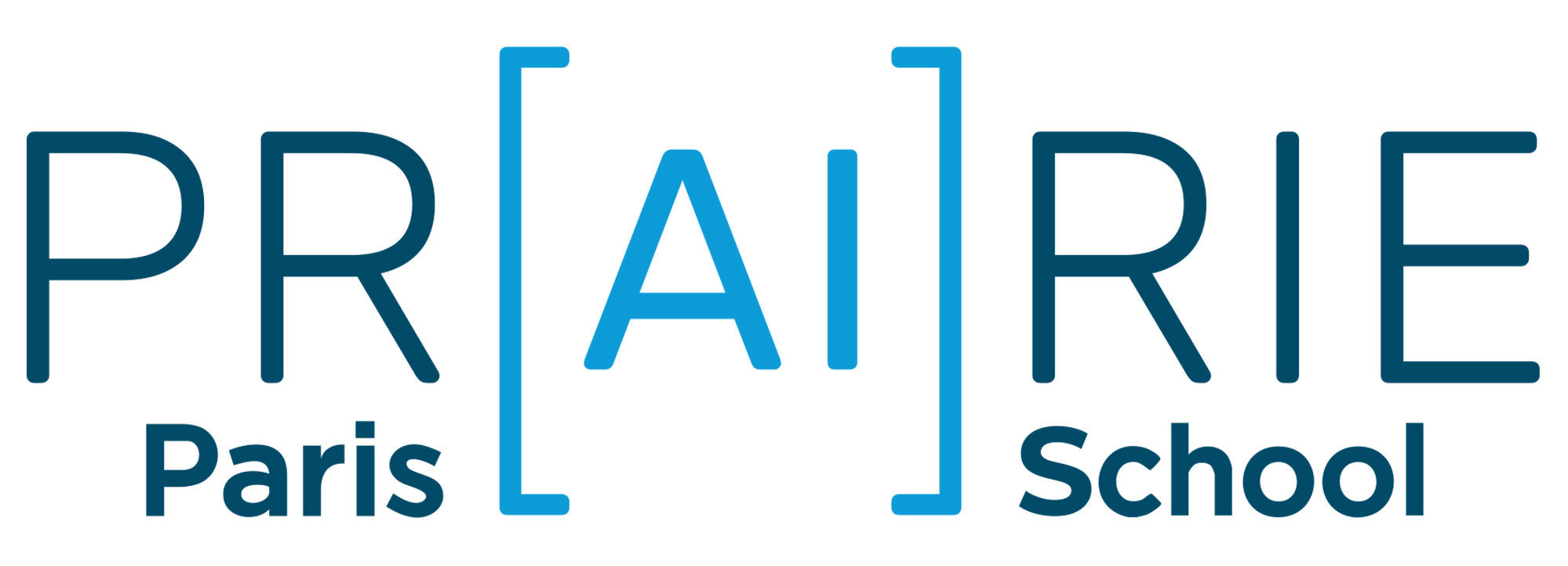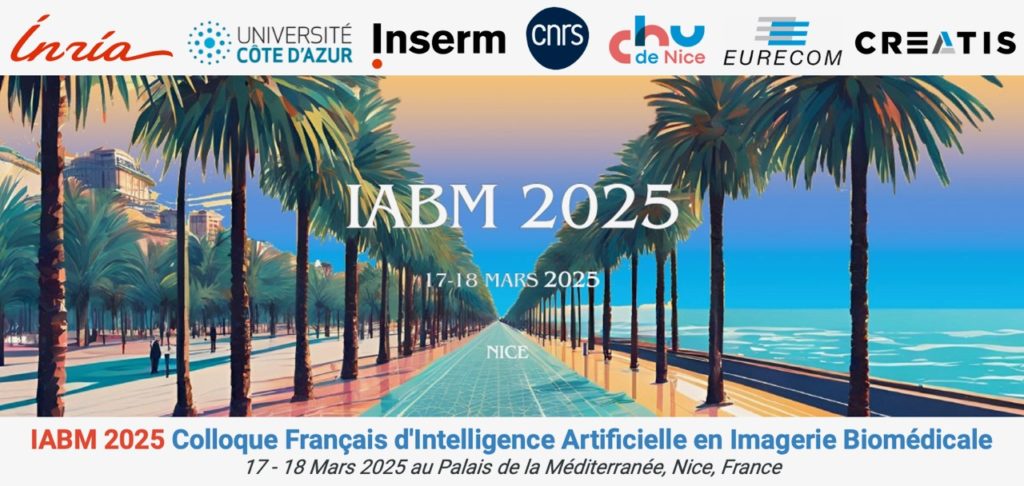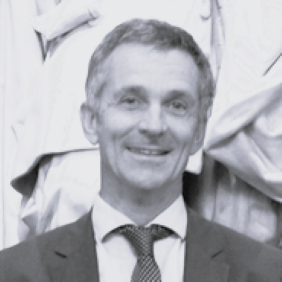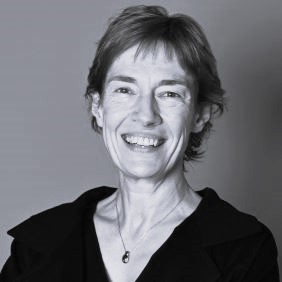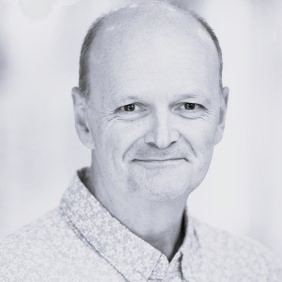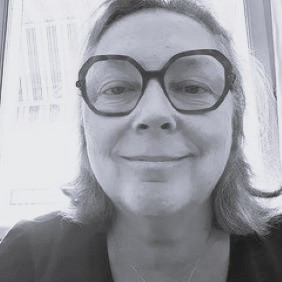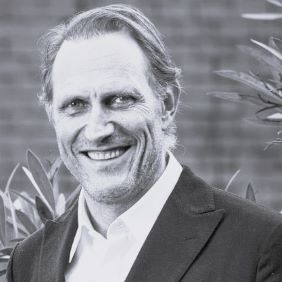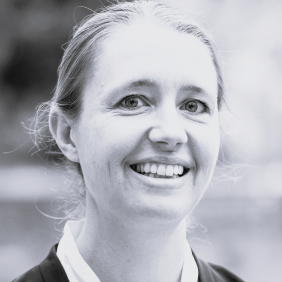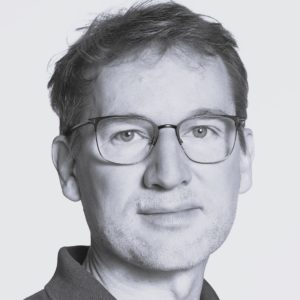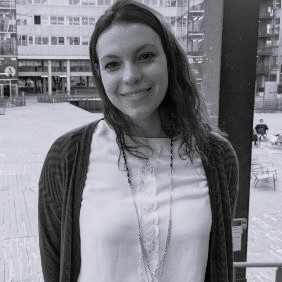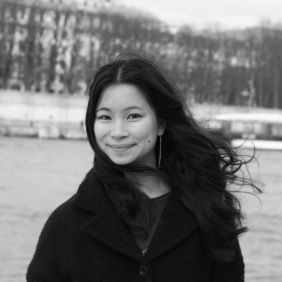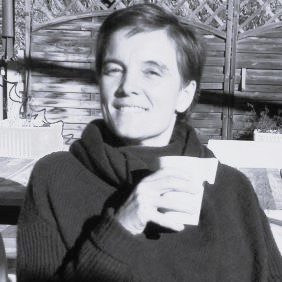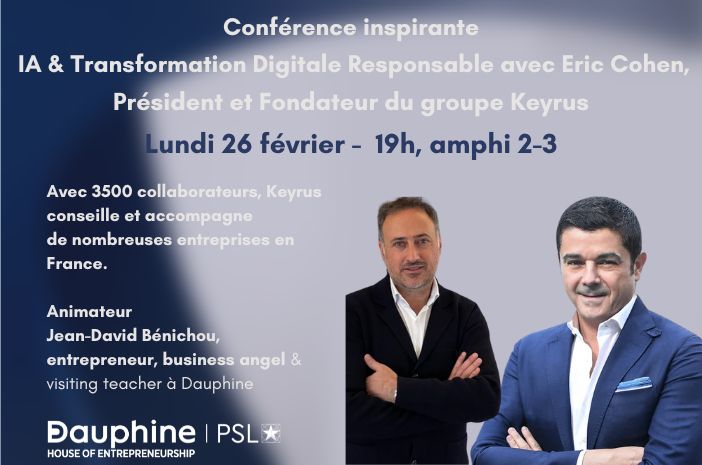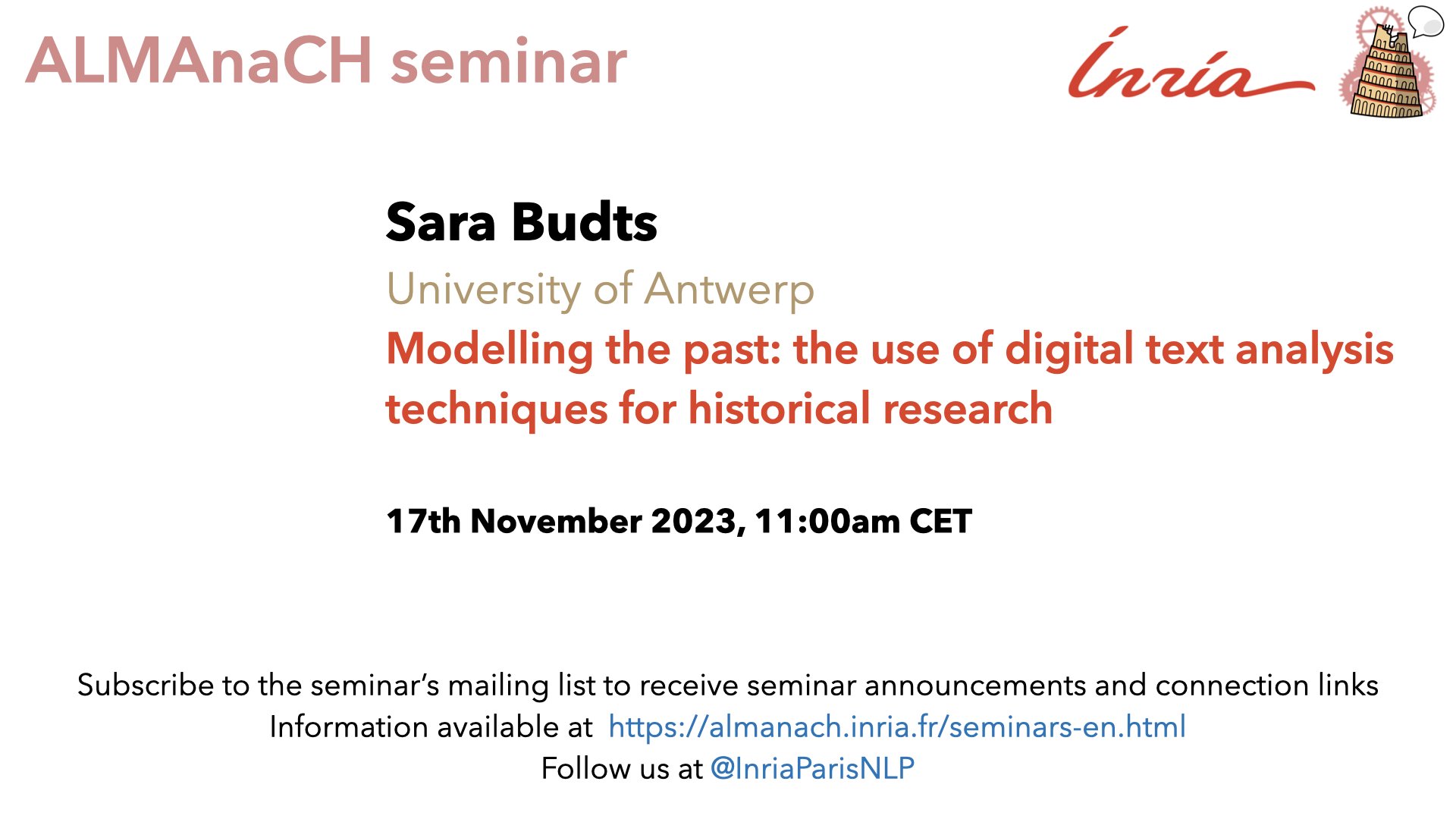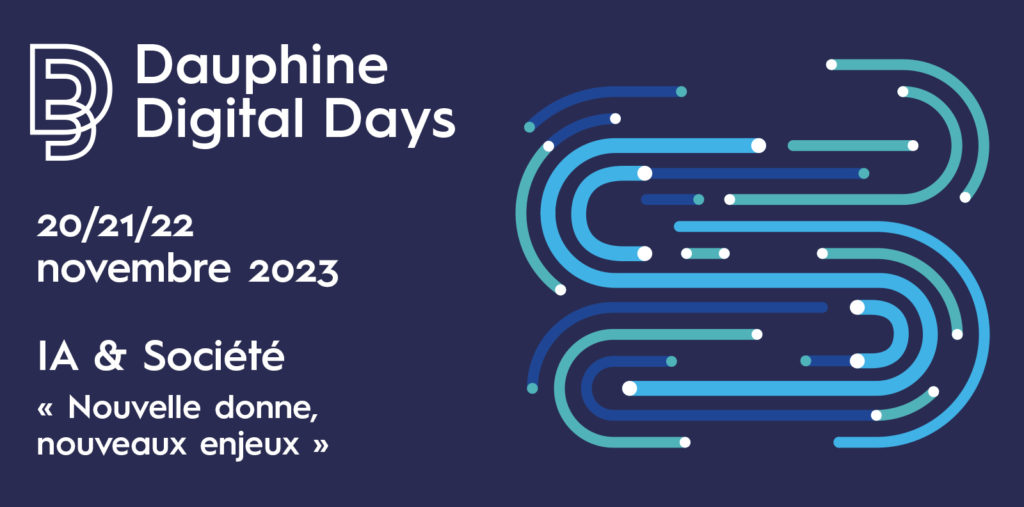Fully booked. Watch live streaming.
Programme
09:30-09:40 Opening
Jean Ponce, Prof. École normale supérieure – PSL, Scientific Director of PRAIRIE
Isabelle Ryl, Vice President AI of PSL, Director of PRAIRIE
09:40-10:50 Session I
Moderator: Gabriel Peyré
09:40-10:15 Francis Bach, Research Director Inria, member of Académie des Sciences
“An alternative view of denoising diffusion models”
10:15-10:50 Stéphane Mallat, Prof. Collège de France, member of Académie des Sciences
“Approximation and generalisation of image generation by denoising score matching”
10:50-11:10 Coffee Break
11:10-12:40 Session II
Moderator: Justine Cassell
11:10-11:30 Virginie Do, 2023 laureate of L’Oréal-Unesco Young French Talent Award for Women in Science
“Fairness in recommender systems: Insights from social choice”
11:30-12:05 Giulio Biroli, Prof. École normale supérieure – PSL
“Dynamical Regimes of Diffusion Models”
12:05-12:40 Michael Jordan, Research director at INRIA, member of the US National Academy of Sciences, and Foreign Member of the Royal Society
“An Alternative View on AI: Collaborative Learning, Incentives, and Economic Tradeoffs”
12:40-13:40 Lunch
13:40-15:45 Session III
Moderator: Stéphanie Allassonnière
13:40-14:15 Judith Rousseau, Prof. Université Paris Dauphine-PSL
“Bayesian nonparametric manifold learning” (joint talk with Paul Rosa, PhD student University of Oxford)
14:15-14:50 Daniel Cremers, Director of the Munich Center for Machine Learning and Chair of Computer Vision and Artificial Intelligence at TU Munich, member of the Bavarian Academy of Sciences
“3D Computer Vision for Dynamic Scene Understanding”
14:50-15:25 Cordelia Schmid, Research Director Inria, member of the German Leopoldina Academy of Sciences
“Advances in Dense Video Captioning, Vision-Guided Navigation and Robot Manipulation”
15:25-15:45 Céline Beji, 2023 laureate of i-PhD BPI France
“Causal inference for the prescription of personalised cancer treatments”
15:45-16:05 Coffee break
16:05-17:50 Session IV
Moderator: Jean-Baptiste Masson
16:05-16:40 Julia Kempe, Prof. NYU, Visiting Prof. École normale supérieure – PSL, Meta AI
“Synthetic Data – Friend or Foe in the Age of Scaling?”
16:40-17:15 Marc Raibert, Executive director of The AI Institute and founder of Boston Dynamics
“Making Robots Smarter in Body in Mind”
17:15-17:50 Yann LeCun, Vice-President and Chief AI Scientist META AI, Prof. NYU, member of the US National Academy of Sciences, member of the Académie des Sciences, 2018 ACM Turing Award Laureate
17:50-18:00 Closing
Cocktail
Speakers

BACH Francis
Research Director Inria, member of Académie des Sciences, PR[AI]RIE Chair
Francis Bach is a researcher at Inria, leading since 2011 the machine learning team which is part of the Computer Science department at Ecole Normale Supérieure. He graduated from Ecole Polytechnique in 1997 and completed his Ph.D. in Computer Science at U.C. Berkeley in 2005, working with Professor Michael Jordan. He spent two years in the Mathematical Morphology group at Ecole des Mines de Paris, then he joined the computer vision project-team at Inria/Ecole Normale Supérieure from 2007 to 2010. Francis Bach is primarily interested in machine learning, and especially in sparse methods, kernel-based learning, neural networks, and large-scale optimization He obtained in 2009 a Starting Grant and in 2016 a Consolidator Grant from the European Research Council, and received the Inria young researcher prize in 2012, the ICML test-of-time award in 2014 and 2019, the NeurIPS test-of-time award in 2021, as well as the Lagrange prize in continuous optimization in 2018, and the Jean-Jacques Moreau prize in 2019. He was elected in 2020 at the French Academy of Sciences. In 2015, he was program co-chair of the International Conference in Machine learning (ICML), general chair in 2018, and president of its board between 2021 and 2023; he was co-editor-in-chief of the Journal of Machine Learning Research between 2018 and 2023.
BEJI Céline
Université Paris Cité, 2023 laureate of i-PhD BPI France
Céline Beji is a researcher in personalised medicine and the founder & CEO at MyTreatment. Her innovative work at Université Paris Cité uses causal inference in healthcare to bridge the gap between cutting-edge research and its practical application in medical practice. After completing her PhD at Université Paris Dauphine PSL as a member of the Machine Learning team, she furthered her expertise by completing a Master’s degree in Entrepreneurship and Deeptech Innovation at Mines Paris PSL.
With MyTreatment, she aims to revolutionise the way cancer treatments are prescribed and make personalised medicine accessible to patients worldwide. Her contributions have been supported by several grants (PSL, PÉPITE Île-de-France), and she has received the i-PhD 2023 award from BpiFrance, which promotes and supports young innovative researchers with entrepreneurial projects in the field of breakthrough technologies.
BIROLI Giulio
Prof. École normale supérieure – PSL, PR[AI]RIE Chair
Professor of theoretical physics at ENS Paris (2018-). Research director at IPhT CEA (2002-2018). Associate professor at the Ecole Polytechnique (2010-2015). DIrector of the ICFP Master (2019-), director of the Beg Rohu Summer School (2008-). Editor in Chief of Journal of Statistical Physics. PI of the Simons collaboration «Cracking The Glass Problem», ERC Consolidator Grant 2011. CNRS Silver Medal 2024, Prix d’Aumale 2018, Young Scientist award in statistical physics 2007.
CREMERS Daniel
Director of the Munich Center for Machine Learning, Chair of Computer Vision and Artificial Intelligence at TU Munich, member of the Bavarian Academy of Sciences
Daniel Cremers is Director of the Munich Center for Machine Learning and holds the Chair of Computer Vision and Artificial Intelligence at TU Munich. After studying physics and mathematics, he received his doctorate in computer science in 2002. He has conducted research in Heidelberg, Mannheim, Rennes, Los Angeles, Princeton, Bonn, Cambridge, and Oxford. He has co-authored over 500 publications and is listed among the top 10 most influential roboticists of the last decade. He received numerous awards including the Gottfried-Wilhelm Leibniz Prize, the biggest award in German academia. He has served as co-founder, advisor and business angel to several startups.
DO Virginie
2023 laureate of L’Oréal-Unesco Young French Talent Award for Women in Science
Virginie Do is a Research Scientist at Meta, working on safe & responsible AI. She recently completed her PhD at Université Paris Dauphine-PSL and Meta (FAIR). Her PhD focused on fairness in recommender systems. Her work has been recognized with an Outstanding Paper Award at AAAI 2022 and a L’Oreal-UNESCO French Young Women In Science award.
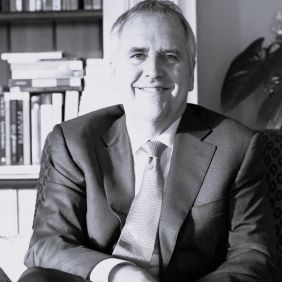
JORDAN Michael I.
Research director at INRIA, member of the US National Academy of Sciences, and Foreign Member of the Royal Society
Michael I. Jordan is a researcher at INRIA and Professor Emeritus at the University of California, Berkeley. His research interests bridge the computational, statistical, cognitive, biological and social sciences. Prof. Jordan is a member of the National Academy of Sciences, a member of the National Academy of Engineering, a member of the American Academy of Arts and Sciences, and a Foreign Member of the Royal Society. He was the inaugural winner of the World Laureates Association (WLA) Prize in 2022. He was a Plenary Lecturer at the International Congress of Mathematicians in 2018. He has received the Ulf Grenander Prize from the American Mathematical Society, the IEEE John von Neumann Medal, the IJCAI Research Excellence Award, the David E. Rumelhart Prize, and the ACM/AAAI Allen Newell Award. In 2016, Prof. Jordan was named the “most influential computer scientist” worldwide in an article in Science, based on rankings from the Semantic Scholar search engine.

KEMPE Julia
Prof. NYU, Visiting Prof. École normale supérieure – PSL, Meta AI
Julia Kempe is a visiting researcher at CSD at the ENS and a part time Visiting Senior Researcher at Meta FAIR Paris, while on leave from NYU, where she is a Silver Professor of Computer Science, Mathematics and Data Science at the NYU Center for Data Science and the Courant Institute of Mathematical Sciences since 2018. From 2011-18 she worked as a quantitative researcher in finance. Before that she was a Research Director at the CNRS in Computer Science in Paris 7, and Associate
Professor of Computer Science at Tel Aviv University. She holds PhD degrees in Mathematics from UC Berkeley and in Computer Science from ENST. Her early works are in quantum computing and quantum complexity, while more recently she has pivoted to machine learning and data science. She has been awarded the CNRS Bronze Medal, the Prix Irene Joliot-Curie for young researcher and the Krill Prize for Excellence in Scientific research, among others.

LECUN Yann
Vice-President and Chief AI Scientist META AI, Prof. NYU, member of the US National Academy of Sciences, member of the Académie des Sciences, 2018 ACM Turing Award Laureate
Yann LeCun is VP & Chief AI Scientist at Meta and Silver Professor at NYU affiliated with the Courant Institute of Mathematical Sciences & the Center for Data Science. He was the founding Director of FAIR and of the NYU Center for Data Science. He received an Engineering Diploma from ESIEE (Paris) and a PhD from Sorbonne Université. After a postdoc in Toronto he joined AT&T Bell Labs in 1988, and AT&T Labs in 1996 as Head of Image Processing Research. He joined NYU as a professor in 2003 and Meta/Facebook in 2013. His interests include AI, machine learning, computer perception, robotics, and computational neuroscience. He is the recipient of the 2018 ACM Turing Award (with Geoffrey Hinton and Yoshua Bengio) for “conceptual and engineering breakthroughs that have made deep neural networks a critical component of computing”, a member of the National Academy of Sciences, the National Academy of Engineering, the French Académie des Sciences
MALLAT Stephane
Prof. Collège de France, member of Académie des Sciences, PR[AI]RIE Chair
Professor at NYU from 1988 to 1994. Professor at Ecole Polytechnique, from 1994 to 2012. Co-founder and CEO of a semiconductor start-up from 2001 to 2007. Professor in Computer Science at Ecole Normale Supérieure from 2012-to 2017. Professor at the Collège de France in Data Sciences since 2017. Member of the French Academy of sciences, of the French Academy of Technologies and foreign member of the US National Academy of Engineering. IEEE and EUSIPCO Fellow. Recipient of the SPIE 2007 Outstanding Achievement Award, of the 2004 European IST Grand prize, of the 2004 INIST-CNRS prize for most cited French Researcher in engineering, of the 2015 IEEE Signal Processing best sustaining paper award, of the 2017 IEEE Freidrich Gauss Prize.
RAIBERT Marc
Executive director of The AI Institute and founder of Boston Dynamics
Marc Raibert is the executive director of The AI Institute a new research lab devoted to advancing both the intelligence of robots and their physical skills. He is also the founder of Boston Dynamics. Prior to Boston Dynamics, Raibert was a professor of electrical engineering and computer science at MIT, and CMU before that. There he created the Leg Laboratory, a lab that helped establish the scientific basis for highly dynamic robots. Raibert is a Founding Fellow of AAAI, a member of the National Academy of Engineering, was named Pioneer in Robotics in 2022 by IEEE and received the Engelberger Award in Technology.
ROUSSEAU Judith
Prof. Université Paris Dauphine-PSL
Judith Rousseau works on the theoretical properties of Bayesian methods in high dimensions, with special interests in uncertainty quantifications, semi-parametric inference and scalable methods. She received her Phd in Statistics at University Paris 6 in 1997. She was assistant professor in University Paris 5 from 1998 – 2003 and became Professor of Statistics at University Paris Dauphine in 2003. She has been statutory professor at the University of Oxford since 2017 and has now a joint affiliation between Oxford and Université Paris Dauphine. She has been an AE of a number of journals, such as Annals of Statistics, Bernoulli, JASA, EJS, Scandinavian Journal of statistics and is editor of Bayesian Analysis. She is a fellow of the IMS and ISBA. She received the Ethel Newbold prize in 2015, gave a Medallion lecture at the IMS in 2017 and has received an ERC advanced grant in 2019.
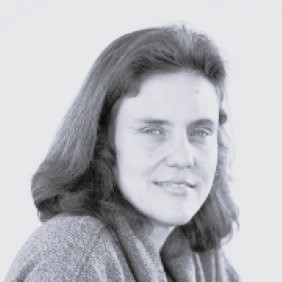
SCHMID Cordelia
Research Director Inria, member of the German Leopoldina Academy of Sciences, PR[AI]RIE Chair
Cordelia Schmid holds a M.S. degree in Computer Science from the University of Karlsruhe and a Doctorate in Computer Science, from the Institut National Polytechnique de Grenoble (INPG). Her doctoral thesis on “Local Greyvalue Invariants for Image Matching and Retrieval” received the best thesis award from INPG in 1996. She received the Habilitation degree in 2001 for her thesis entitled “From Image Matching to Learning Visual Models”. Dr. Schmid was a post-doctoral research assistant in the Robotics Research Group of Oxford University in 1996–1997. Since 1997 she has held a permanent research position at Inria, where she is a research director. Dr. Schmid is a member of the German National Academy of Sciences, Leopoldina and a fellow of IEEE and the ELLIS society. She was awarded the Longuet-Higgins prize in 2006, 2014 and 2016, the Koenderink prize in 2018, and the Helmholtz prize in 2023, for fundamental contributions in computer vision that have withstood the test of time. She received an ERC advanced grant in 2013, the Humboldt research award in 2015, the Inria & French Academy of Science Grand Prix in 2016, the Royal Society Milner award in 2020, the PAMI distinguished researcher award in 2021 and the Körber European Science Price in 2023. Dr. Schmid has been an Associate Editor for IEEE PAMI (2001–2005) and for IJCV (2004–2012), an editor-in-chief for IJCV (2013–2018), a program chair of IEEE CVPR 2005 and ECCV 2012 as well as a general chair of IEEE CVPR 2015, ECCV 2020 and ICCV 2023. Starting 2018 she holds a joint appointment with Google research.
